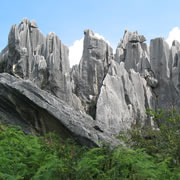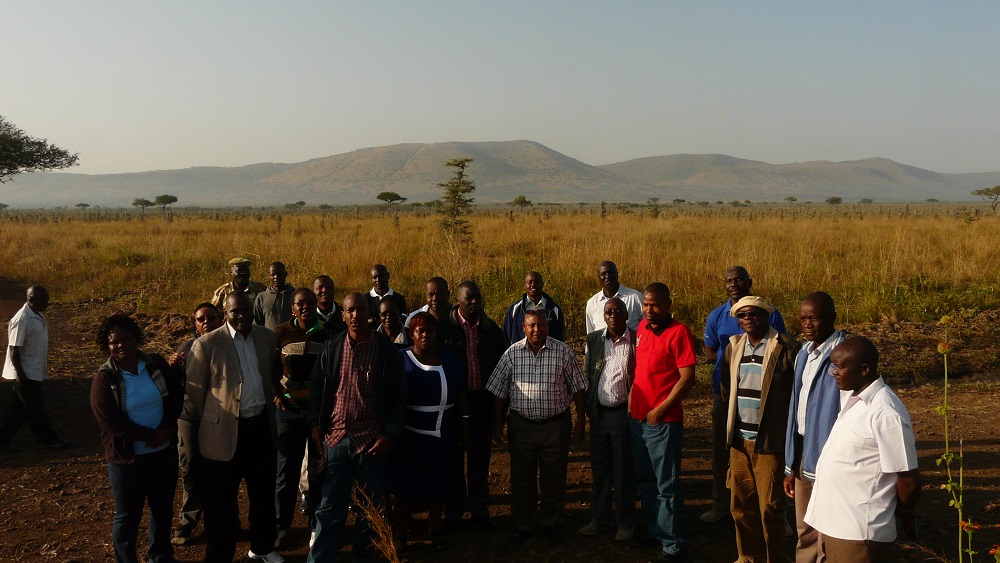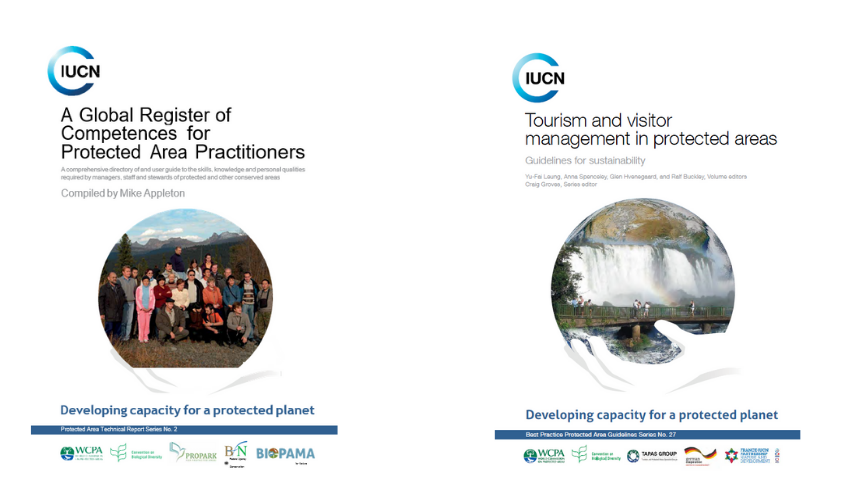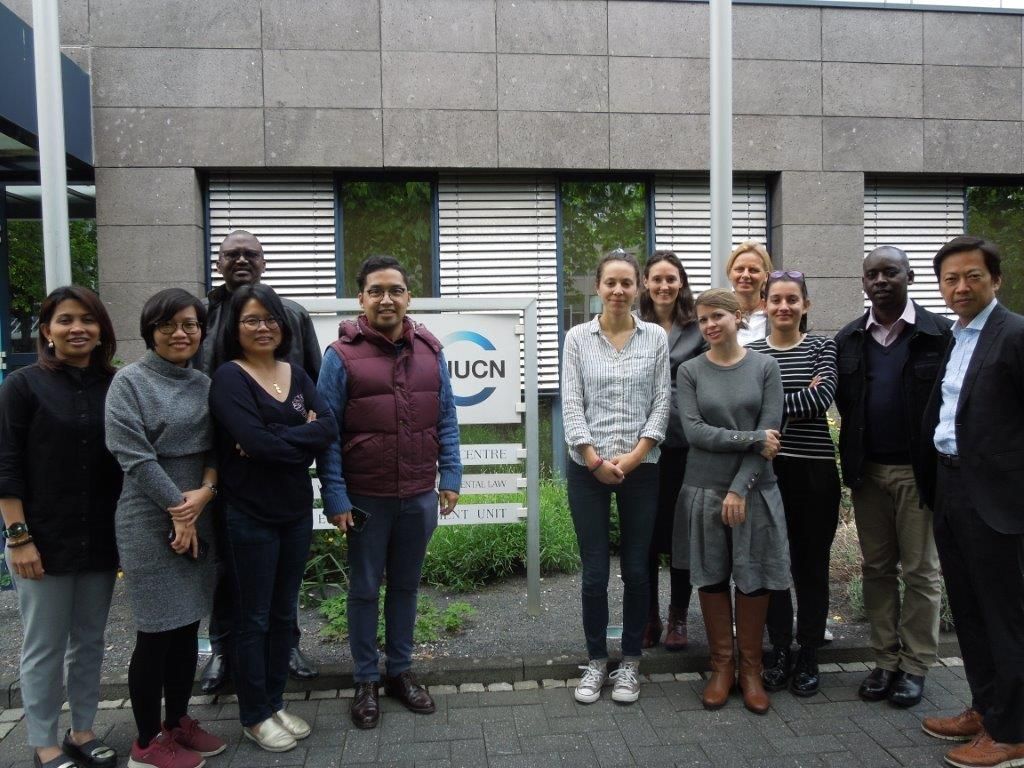World Conservation Union recommends six new sites for inscription on World Heritage List
A rainforest time capsule in Madagascar, a lava tube system in the Republic of Korea and primeval beech forests straddling Slovakia and the Ukraine are among five natural sites being recommended for inclusion on the World Heritage List by the World Conservation Union (IUCN).

Photo: Jim Thorsell
As the official advisory body on natural World Heritage sites, IUCN has carried out expert missions to 12 natural and mixed (cultural and natural) sites nominated for inclusion on the World Heritage List and will recommend to the UNESCO World Heritage Committee five new natural sites, one mixed site and the extension of one natural site.
The Committee will consider 37 new cultural and natural sites nominated for UNESCO’s prestigious World Heritage List at its 31st meeting in Christchurch, New Zealand, from 23 June - 2 July.
IUCN will also propose actions for current World Heritage sites under threat. Out of 186 natural and mixed World Heritage sites, 13 are currently on the so-called danger list, threatened by civil unrest, illegal activities such as poaching, mining and logging, inadequate funding, or poor management.
Among the sites IUCN will report on are the 14 to which it conducted joint monitoring missions with UNESCO. The missions included the Galapagos Islands in Ecuador, where tourist numbers have increased from 40,000 to more than 120,000 since 1991, and the Arabian Oryx Sanctuary in Oman, where the size of the reserve protected under law has been reduced by 90%.
IUCN will also report on the Selous Game Reserve in the United Republic of Tanzania, the second largest protected area in Africa (larger than Denmark), which benefits from keeping 50% of the revenue from hunting concessions. The money is then used to manage the park and develop and maintain tourism and park infrastructure.
New natural sites recommended for inscription:
South China Karst, China
The South China Karst is unrivalled for the diversity of its karst features – a distinctive rock formation – which extend over 500,000 km2. There were seven protected areas in three separate clusters up for nomination. IUCN is recommending two clusters, Shilin and Libo, for inscription on the World Heritage List. The stone forests of Shilin are considered exceptional natural phenomena and the tower karsts of Libo are seen as the world reference site for these types of karsts.
Rainforests of Atsinanana, Madagascar
These forests are critically important for maintaining the island’s unique plants and animals, 80 to 90% of which can only be found in Madagascar and some of which date back to glacial periods. Deforestation in the eastern part of the island has left just 8.5% of its original forests and the proposed World Heritage site would protect this remaining habitat. The site comprises a representative selection of the most important habitats of unique rainforest life, including many threatened and endemic plant and animal species.
Jeju Volcanic Island and Lava Tubes, Republic of Korea
Jeju Volcanic Island and Lava Tubes is comprised of a shield volcano which is about 1.2 million years old and rises to 1,950 m with Mt Hallasan, Korea’s highest peak. The Geomunoreum lava tube system is the most impressive and significant series of protected lava tube caves in the world and includes a spectacular array of stalactites and stalagmites. The site is 18,846 ha and covers 10.3% of the island.
Primeval Beech Forests of the Carpathians, Slovakia and Ukraine
The Primeval Beech Forests of the Carpathians represent an outstanding example of undisturbed, complex temperate forests. They demonstrate the most complete ecological patterns of European beech across a variety of environmental conditions. They also contain an invaluable genetic reservoir of European beech and the many species associated with and dependent on the forest.
Teide National Park, Spain
Teide National Park is situated on the island of Tenerife in the Canary Islands. The site covers 18,990 ha and includes rich and diverse volcanic features and landscapes concentrated in a spectacular setting. The park is home to the world’s third tallest volcano, the 3,781 m Teide-Pico Viejo, the highest peak in Spain. The park is an excellent example of a mature, slow-moving and geologically complex volcanic system. It is of global importance in providing diverse evidence of the geological processes that underpin the evolution of oceanic islands.
New mixed site recommended for inscription:
Ecosystem and Relic Cultural Landscape of Lopé-Okanda, Gabon
This landscape represents a very unusual boundary between dense and well-conserved tropical rainforest and relict savannah environments. The site preserves a record of biological evolution over the last 15,000 years in the rainforest-savannah transition zone. Many threatened species of large mammals find an important refuge in Lopé-Okanda, such as gorillas and elephants. It is also one of the most outstanding areas in relation to plant and forest diversity in the Congo Rainforest.
Natural site recommended for extension:
Jungfrau-Aletsch-Bietschhorn, Switzerland
The current Jungfrau-Aletsch-Bietschhorn World Heritage site covers 53,000 ha on the territory of 15 communes in the Swiss Alps. The proposed extension would increase the area by 53% to 82,400 ha over 26 communes. The site is the most glaciated part of the European Alps, containing Europe’s largest glacier and a range of classic glacial features. It provides an outstanding record of the geological processes that formed the High Alps. A diverse range of flora and fauna is also represented in the site and plant colonization in the wake of retreating glaciers provides an excellent example of plant succession.
Notes to editors
The IUCN delegation present in Christchurch, New Zealand, will be reporting back from the meeting on a regular basis between 23 June and 2 July. Regular updates can be found on www.iucn.org.
More information on the World Heritage Convention and the List of World Heritage sites can be found at: whc.unesco.org
The World Heritage List currently includes 830 sites in 184 States Parties: 644 cultural, 162 natural and 24 mixed (cultural and natural) sites.
IUCN, whose independent advisory role is enshrined in the text of the World Heritage Convention, has been involved in the Convention since its inception, having played a major part in drafting the text with UNESCO in 1972. IUCN undertakes technical evaluations of the natural values of the sites nominated for inscription on the World Heritage List and has evaluated over several hundred nominated sites. Further information on IUCN’s World Heritage work is available at: web
Additionally, each year IUCN reports to the World Heritage Centre on the conservation status of certain natural and mixed World Heritage sites under threat. IUCN’s assessments on what is happening in World Heritage sites are derived from a variety of sources: IUCN members, indigenous peoples groups, the scientific community, experts from IUCN commissions and concerned individuals and organizations.
For more information or to set up interviews, please contact:
In Gland, Switzerland:
Sarah Halls, Global Media Relations Officer, The World Conservation Union (IUCN), Tel: +41 22 999 0127, e-mail: sarah.halls@iucn.org, Web: www.iucn.org
In Christchurch, New Zealand:
Bastian Bomhard, World Heritage Officer, The World Conservation Union (IUCN), Tel: +41 79 716 5401, e-mail: bastian.bomhard@iucn.org, Web: www.iucn.orgPhotos available on request from sarah.halls@iucn.org
About the World Conservation Union (IUCN)
Created in 1948, the World Conservation Union (IUCN) brings together 84 States, 108 government agencies, 800 plus NGOs, and some 10,000 scientists and experts from 181 countries in a unique worldwide partnership. The Union’s mission is to influence, encourage and assist societies throughout the world to conserve the integrity and diversity of nature and to ensure that any use of natural resources is equitable and ecologically sustainable.
The Union is the world's largest environmental knowledge network and has helped over 75 countries to prepare and implement national conservation and biodiversity strategies. The Union is a multicultural, multilingual organization with 1,000 staff located in 62 countries. Its headquarters are in Gland, Switzerland.
More information can be found at www.iucn.org



